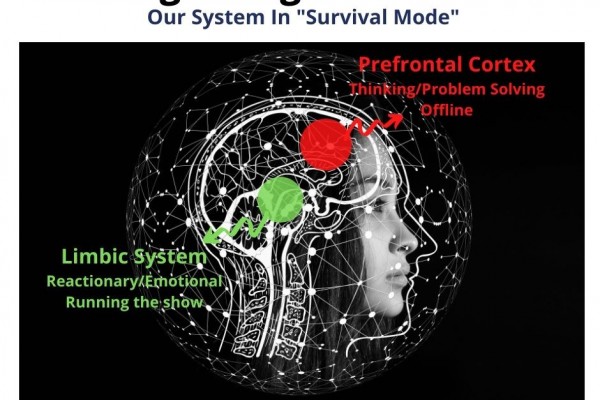How Stress Affects Our Muscles
Posted Nov 04, 2020 at 07:40
Posted Nov 04, 2020 at 07:40

How stress affects our muscles We are not focusing on how stress/ danger input affects the brain or cardiorespiratory system here, that's for another day, this is entirely how it affects our muscles.
Through thousands of years our bodies have developed a fast subconscious reaction to stressful situations, you will have heard this called the fight, flight freeze response, we typically refer to it as a sympathetic nervous system response.
This is a built in physiological response to danger that helped us fight or run away from predators like sabertooth tigers long before the days of cars and guns.
This response is what kept us alive in times of need but as we have evolved and become more comfortable we are faced with far fewer situations in which we need to fight or run for our lives.
But whether the stress is from an oncoming predator or a looming deadline at work the input to the brain and therefore our bodies reaction is the same!
In order to fight or run we need our large powerful muscles of the arms and legs to activate and be the primary focus of our brain�s attention, to give us the best chance of survival. Inturn what this does is turn off the small muscles closest to the spine as in times of life and death they play a much less vital role.
The problem being many people spend far too much time in a fight, flight freeze (sympathetic) state due to all the financial, emotional and personal stressors of modern life.
This means our large muscles are constantly turned on and small spinal muscles turned off.
Despite their size the small muscles in and around the spine play a huge part in how our bodies function. They should be constantly sending information to our brain, so the brain is accurately aware of where it is in space. When these muscles get turned off in stressful situations our brain loses track of where the body is in space, and without all the information it needs, it guesses.
If we spend to much time in this stressful sympathetic state a self perpetuating cycle starts where our small muscles turn off, the brain doesn't know where our bodies are in space, the brain guesses, meaning our movement and control gets worse, which means our body isn't where it should be and goes round and round getting worse each cycle.
Just like learning to play the piano, the more time we spend doing something, the more the brain adapts and learns to do it better. This is no difference, only instead of learning and adapting in a positive healthy way (called adaptation) its doing so in a way that will negatively affect our health (called maladaptative) So, the take home is don't stress the small stuff, save that for a time that matters, and find the hidden joy in all the small things in life. This way you can spend more time in a rest and digestive state (more to come on this soon) and less time in fight, flight freeze.